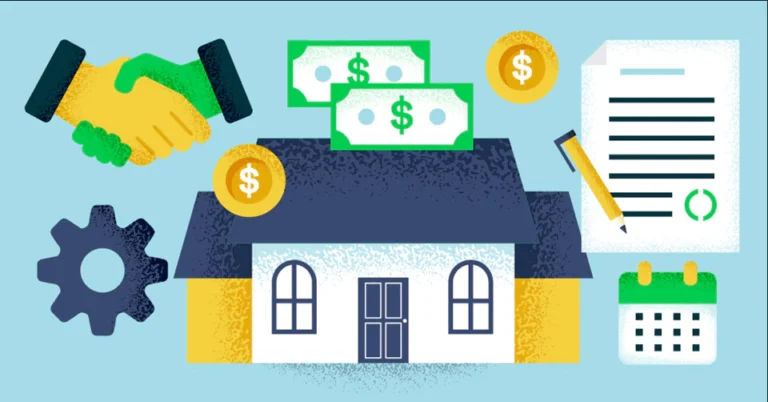Avoiding bankruptcy is crucial for maintaining financial stability and protecting your creditworthiness. By implementing effective debt management strategies, such as budgeting, prioritizing high-interest debts, and exploring consolidation options, you can regain control of your finances and steer clear of bankruptcy. Taking proactive steps now can pave the way toward a more secure financial future.
Understanding Bankruptcy and Its Consequences
Bankruptcy is a legal process that helps individuals or businesses eliminate or repay their debts under the protection of the bankruptcy court. While it can provide relief for those drowning in debt, it also has significant consequences.
Filing for bankruptcy can severely damage your credit score, making it difficult to obtain loans, mortgages, or even secure rental housing in the future. Additionally, bankruptcy can lead to the loss of assets and have a long-lasting impact on your financial reputation. Therefore, exploring alternatives to bankruptcy is crucial for those seeking to manage their debt effectively.
Assess Your Financial Situation
The first step in managing debt and avoiding bankruptcy is to assess your financial situation thoroughly. Begin by listing all your debts, including credit cards, loans, and other liabilities. Next, create a detailed budget that outlines your income and essential expenses such as housing, food, and utilities. Understanding where your money goes each month will help you identify areas where you can cut back and allocate more funds toward paying down your debt.
Create a Realistic Budget
Start by prioritizing your essential expenses, such as rent or mortgage, utilities, and groceries. Then, allocate funds to your debts, focusing on making at least the minimum payments on all accounts to avoid late fees and additional interest charges. Be disciplined about sticking to your budget, and look for opportunities to reduce discretionary spending. Small changes, such as cooking at home instead of eating out or canceling unused subscriptions, can free up more money to pay down debt.
Prioritize High-Interest Debt
One of the most effective strategies for managing debt is to prioritize high-interest accounts. Credit cards often carry the highest interest rates, making them a prime target for aggressive repayment. Consider using the debt avalanche method, where you pay off debts with the highest interest rates first while making minimum payments on others. Alternatively, the debt snowball method focuses on paying off the smallest debts first, which can provide a psychological boost and momentum to tackle larger debts. Both strategies can help you reduce your overall debt more quickly and avoid the financial strain that leads to bankruptcy.
Explore Debt Consolidation Options
Combining several debts into one loan with a reduced interest rate is known as debt consolidation. This approach can simplify your payments, reduce interest costs, and help you pay off your debt faster. However, it’s essential to carefully evaluate the terms and fees associated with these options and ensure that consolidation will save you money in the long run. A financial advisor or credit counselor can help you determine the best consolidation strategy for your situation.
Negotiate with Creditors
If you’re struggling to keep up with payments, don’t hesitate to contact your creditors. Many creditors are willing to work with you if you’re proactive about your financial difficulties. You can negotiate lower interest rates, extended payment terms, or even a temporary reduction in your monthly payments. Some creditors may offer hardship programs designed to help individuals facing financial challenges. By negotiating with your creditors, you can create a more manageable repayment plan that helps you avoid bankruptcy.
Seek Professional Financial Advice
Professional financial advice can be invaluable in managing debt and avoiding bankruptcy. A certified credit counselor can help you develop a personalized debt management plan, negotiate with creditors on your behalf, and provide guidance on budgeting and financial planning. Additionally, financial advisors can offer strategies for managing investments, building savings, and planning for long-term financial stability. Seeking professional help can give you the tools and support you need to regain control of your finances and avoid the pitfalls of bankruptcy.
Consider Debt Settlement Carefully
While this option can significantly reduce your debt, it also comes with risks. Debt settlement can negatively impact your credit score, and not all creditors may agree to settle. Additionally, the forgiven debt may be considered taxable income by the IRS. If you decide to pursue debt settlement, it’s essential to work with a reputable debt settlement company and fully understand the potential consequences before proceeding.
Increase Your Income Streams
Increasing your income can provide additional funds to tackle your debt more effectively. If you have specialized skills, explore opportunities for consulting or offering services online. Additionally, ask for a raise or seek a higher-paying job if possible. Increasing your income, even temporarily, can accelerate your debt repayment efforts and reduce the likelihood of needing to file for bankruptcy.
Build an Emergency Fund
Building an emergency fund is a crucial step in managing debt and avoiding bankruptcy. When faced with unforeseen costs like medical bills, auto repairs, or job loss, an emergency fund offers a safety net. Without an emergency fund, these unforeseen costs can force you to rely on credit, further exacerbating your debt situation. Establish a separate, easily accessible account where you save the equivalent of three to six months’ worth of living expenditures. Starting small and consistently contributing to your emergency fund can help you build financial resilience and protect you from future financial crises.
Conclusion
Avoiding bankruptcy requires a proactive approach to managing debt and making informed financial decisions. By assessing your financial situation, creating a realistic budget, and exploring strategies such as debt consolidation, negotiation, and income enhancement, you can take control of your finances and work towards a debt-free future. Seeking professional guidance and building an emergency fund can further strengthen your financial position and help you avoid the lasting consequences of bankruptcy. With determination and the right strategies, you can navigate your way out of debt and achieve financial stability.

